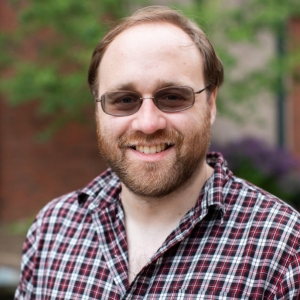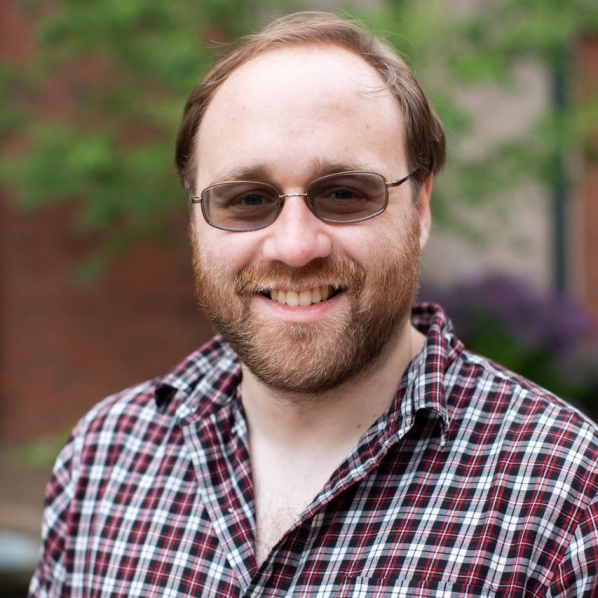BOONE, N.C. — Dr. Pablo Chialvo, lecturer in the Appalachian State Department of Biology, is the author of a new chapter on antiracist pedagogy, titled "Confronting Scientific Racism and Eugenics in a Freshman Biology Course." The chapter will be featured in the upcoming book Antiracist Pedagogy in Action: Curriculum Development from the Field, published by Rowman & Littlefield Publishers.
"Antiracist pedagogy seeks to counteract racist structures by, in part, asking students to critically consider power, privilege and oppression, all in the hopes of producing a more fundamentally democratic society," explained Chialvo. "One problem, however, is that few Americans have a detailed understanding of our racial history; what we learn in K-12 is largely sanitized or whitewashed. Even fewer have a sense of how the concept of race, as a category, came to be and how it fed into pseudoscientific ideas such as eugenics. It is simply considered a biological fact, an essential difference between certain individuals, when in actuality it carries no significant biological meaning."
Chialvo joined the App State Department of Biology as a research associate in 2019 and became a lecturer in 2020. Chialvo, the recipient of the College of Arts and Sciences' 2022 Non-Tenure Track (NTT) Faculty Award for Excellence in General Education Teaching, has taught "Introduction to Evolutionary Biology," "Biological Careers Exploration," "Ecology Laboratory" and "Effective Teaching Strategies for Graduate Students." He also teaches the two "Biology in Society" courses, which are part of App State's General Education Program and the focus of his new chapter.
"I challenge students to reconsider how they think about race by exploring the philosophical, scientific and religious factors that led to the initial development of the idea; make connections between the belief in a racial hierarchy and the American eugenics programs of the early twentieth century; and understand how centuries-old myths concerning race have adapted in the modern age of 'big data,'" said Chialvo.
When asked how he became interested in antiracist pedagogy, Chialvo shared that he grew up in the suburbs of Knoxville, Tennessee, where he, like many in his community, avoided the topic of race. "Race caused me great discomfort; it felt taboo and I would rather leave it unacknowledged than to be faced with the lived experiences of people who did not look like me," said Chialvo. "That feeling changed with the murder of George Floyd in the summer of 2020. Something fundamentally shifted in me and I knew I could no longer sit back, content in the colorblind cocoon I had made for myself. I needed to act."
Chialvo decided to start by educating himself on the subject. In Fall 2020, he applied to the antiracism graduate certificate program at the University of North Carolina at Charlotte. "[I] learned a tremendous amount regarding the history and psychology of racism, racial identity development, race in schooling and, of course, antiracist activism," remarked Chiavo, who completed the certificate in 2022.
Chialvo's passion for antiracism has permeated all aspects of his career, including outside of the classroom. As the newly-appointed chair of the Department of Biology's Inclusive Excellence Committee, Chialvo seeks to harness his expertise and apply it to issues of diversity, equity and inclusion. "This means building surveys to determine baseline departmental climate (both at the faculty and student level), assessing the power dynamics of the department, analyzing the collected data to find priority issues, developing research-backed plans for improvement, implementing those plans, and finally conducting follow-up surveys to see if progress has been made," explained Chialvo. "Put simply, my goal is to approach this work from a scientific and goal-oriented perspective, and enact positive change for our colleagues and students."
Antiracist Pedagogy in Action is edited by Dr. Erin Miller, associate professor and director of the antiracist graduate certificate program at UNCC, and Angela Walker, English teacher at West Charlotte High School in Charlotte and adjunct instructor in the antiracist graduate certificate program at UNCC. The edited volume features chapters written by a diverse group of educators committed to antiracist pedagogy. To learn more about the book, visit rowman.com/ISBN/9781475867886/Antiracist-Pedagogy-in-Action-Curriculum-Development-from-the-Field.
###
About the Department of Biology
The Department of Biology is a community of teacher-scholars, with faculty representing the full breadth of biological specializations — from molecular genetics to landscape/ecosystem ecology. The department seeks to produce graduates with sound scientific knowledge, the skills to create new knowledge, and the excitement and appreciation of scientific discovery. Learn more at https://biology.appstate.edu.
About Appalachian’s General Education Program
The General Education Program at Appalachian State University empowers students with broad knowledge and transferable skills for responsible global citizenship regardless of their chosen major. The General Education Program provides a rigorous liberal arts education that includes 44 semester hours of courses across the university that explore connections among different areas of study, plus two courses in the student’s chosen major — all of which address the goals of critical and creative thinking; effective communication; making local-to-global connections; and understanding the responsibilities of community membership. Learn more at https://generaleducation.appstate.edu.
By Lauren Andersen
February 7, 2022
BOONE, N.C.

